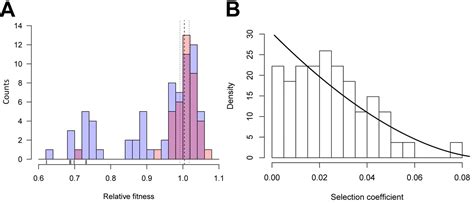Mutations are changes to the DNA of an organism. They can be caused by a variety of factors, including exposure to radiation, chemicals, and errors during DNA replication. Mutations can have a wide range of effects on an organism, from being completely harmless to causing serious diseases or even death.

The effect of a mutation on fitness depends on a number of factors, including the type of mutation, the location of the mutation in the genome, and the genetic background of the organism. Some mutations can be beneficial, while others can be harmful.
Beneficial Mutations
Beneficial mutations are mutations that increase the fitness of an organism. They can do this by improving the organism’s ability to survive and reproduce. For example, a mutation that gives an organism a better immune system or a more efficient metabolism can increase its fitness.
Beneficial mutations are relatively rare, but they are essential for evolution. They provide the raw material for natural selection to work on. Over time, beneficial mutations can accumulate in a population, leading to the evolution of new and improved traits.
Harmful Mutations
Harmful mutations are mutations that decrease the fitness of an organism. They can do this by reducing the organism’s ability to survive and reproduce. For example, a mutation that causes a disease or a developmental defect can reduce an organism’s fitness.
Harmful mutations are more common than beneficial mutations. This is because most mutations are neutral, meaning that they have no effect on fitness. However, even a small number of harmful mutations can have a significant impact on a population.
Neutral Mutations
Neutral mutations are mutations that have no effect on fitness. They do not improve or reduce the organism’s ability to survive and reproduce. Neutral mutations are the most common type of mutation.
Neutral mutations can accumulate in a population over time, leading to genetic drift. Genetic drift is the random change in the frequency of alleles in a population. It can occur due to a number of factors, including population bottlenecks and founder effects.
The Effect of Mutations on Fitness
The effect of mutations on fitness is a complex issue. It depends on a number of factors, including the type of mutation, the location of the mutation in the genome, and the genetic background of the organism. However, it is clear that mutations can have a significant impact on fitness.
Mutations can be beneficial, harmful, or neutral. Beneficial mutations can increase the fitness of an organism, while harmful mutations can decrease fitness. Neutral mutations have no effect on fitness.
The accumulation of mutations over time can lead to evolution. Beneficial mutations can provide the raw material for natural selection to work on, leading to the evolution of new and improved traits.
